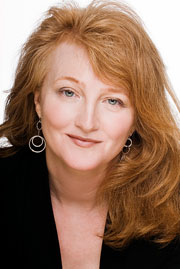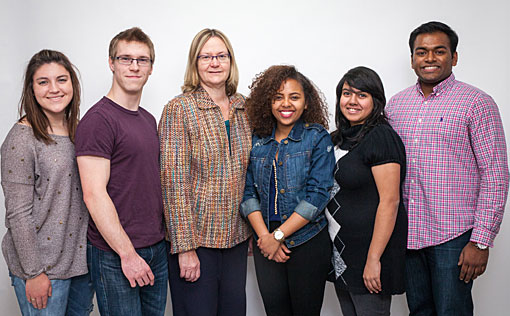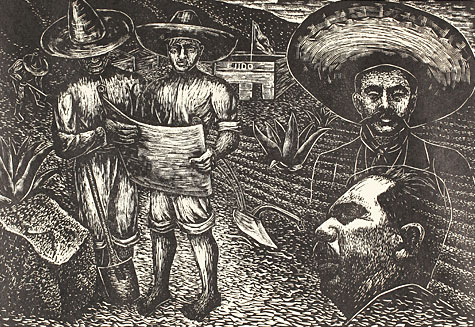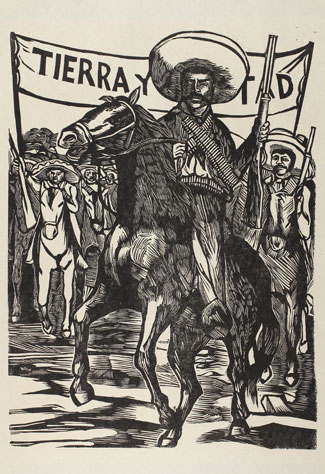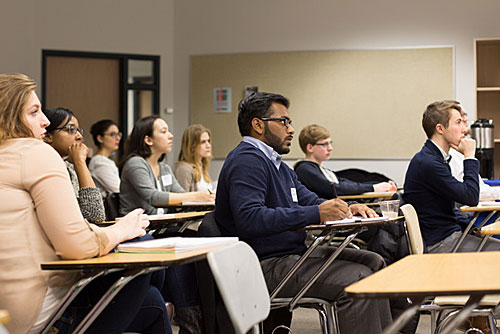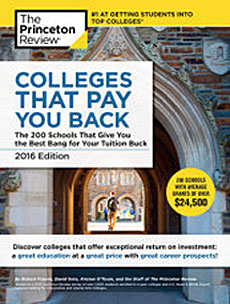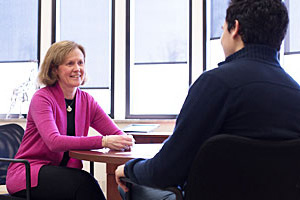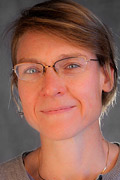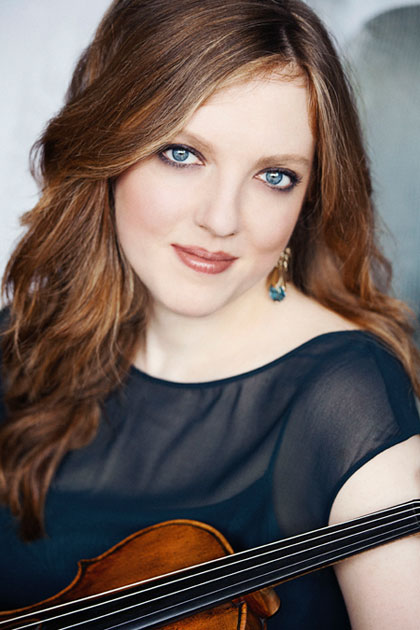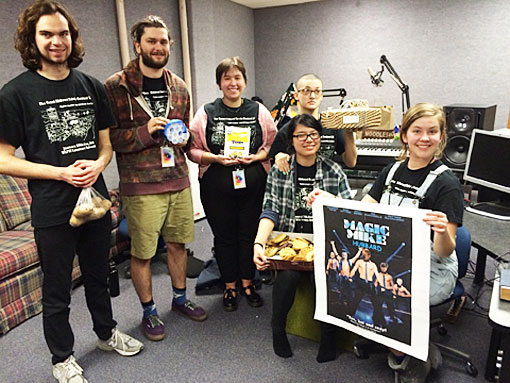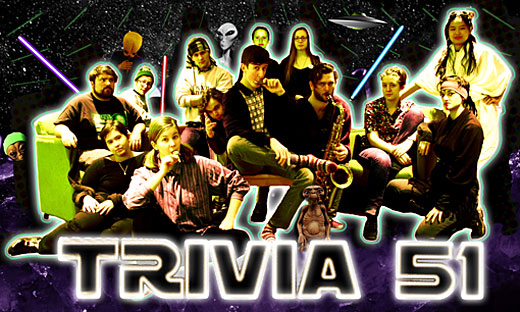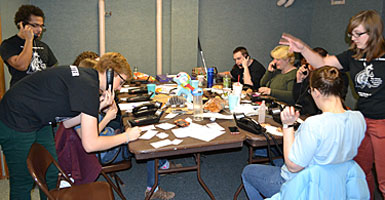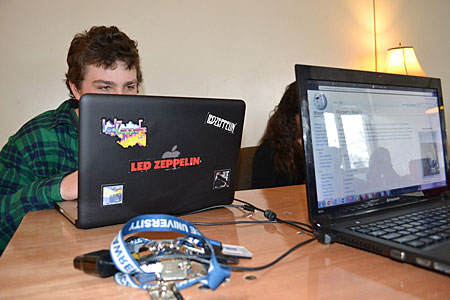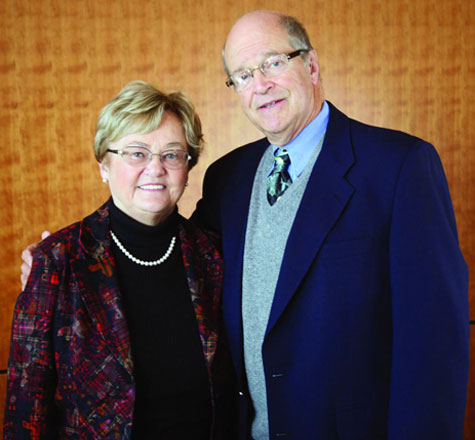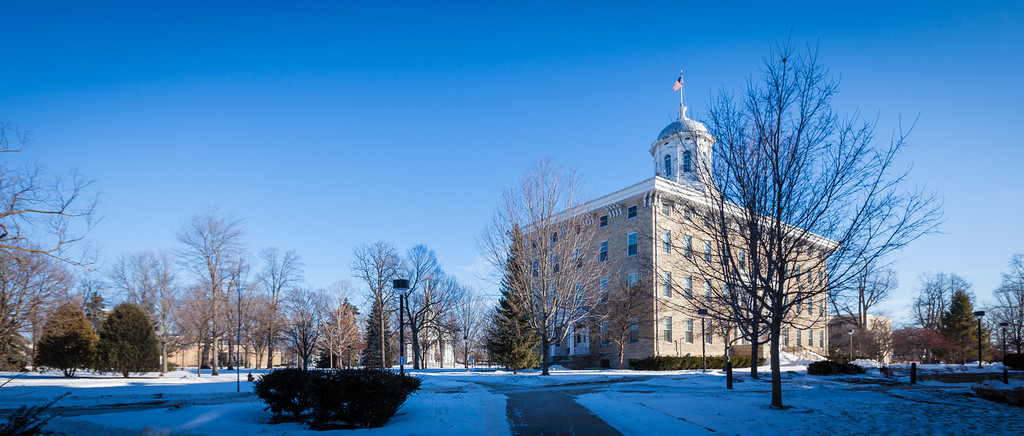Lawrence University anthropologist Peter Peregrine’s work in locating long-forgotten gravesites at the Outagamie County Asylum Cemetery in Grand Chute has been recognized by the Outagamie County Historical Society.
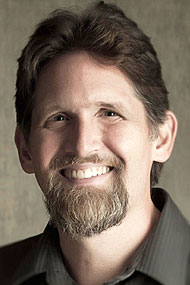
Peregrine has been named the 2016 recipient of the historical society’s annual Lillian F. Mackesy Historian of the Year Award, which honors outstanding contributions to Outagamie County history.
It’s the second straight year a Lawrence faculty member has received the award. Music librarian Antoinette Powell was the 2015 recipient.
Nominated by the Friends of Outagamie County Cemetery, Peregrine will receive his award March 8 at the annual meeting of the Outagamie County Historical Society.
“I am extremely pleased that Peter has received the Outagamie County Historical Society ‘s Lillian Mackesy Historian of the Year award,” said Provost David Burrows. “This award is a wonderful recognition of the high quality of his work. It also symbolizes how talented Lawrence faculty can be successful in projects that cross disciplinary lines — in this case history and anthropology. Lawrence is honored to have one of its faculty recognized in this way.”
With the help of Lawrence students and a magnetometer that allowed him to conduct archeological work below the ground without doing any excavation, Peregrine mapped the cemetery. He was able to identify the final resting place for 133 people buried in unmarked graves who died at the Outagamie County Asylum for the Chronic Insane and whose bodies went unclaimed.
“The entire community is indebted to Professor Peregrine for his extraordinary efforts and commitment to locate the burials at the cemetery.”
— Linda Shinkin, Friends of Outagamie County Cemetery
A formal rededication of the cemetery, which include the unveiling of a granite memorial stone with the name of each person interred, was held last September.
“Professor Peregrine is receiving the historian of the year award specifically for his work with the Outagamie County Asylum Cemetery and public presentation of that work,” said Matt Carpenter, executive director of the History Museum at the Castle. “More broadly, though, the award acknowledges Peter’s commitment to a community-wide conversation about our past and the importance of heritage preservation and public history based on solid methodologies.”
In nominating him for the award, Linda Shinkin on behalf of the Friends of Outagamie County Cemetery wrote “Professor Peregrine’s report completely changed the scope of the restoration of this historic cemetery.
“It really was an educational community project,” wrote Shinkin. “The entire community is indebted to Professor Peregrine for his extraordinary efforts and commitment to locate the burials at the cemetery.”
Established in 1976 by the Outagamie County Historical Society, the award is named in honor of Lillian Mackesy, a former columnist and editor for The Post-Crescent, whose columns included: “Looking Back 100 Years,” “Historically Speaking” and “Remember When?”
Mackesy, the award’s first recipient, was devoted to the preservation and promotion of the region’s historical heritage. Her personal collection forms the core of the History Museum’s research files and photograph collection.
About Lawrence University
Founded in 1847, Lawrence University uniquely integrates a college of liberal arts and sciences with a nationally recognized conservatory of music, both devoted exclusively to undergraduate education. It was selected for inclusion in the book “Colleges That Change Lives: 40 Schools That Will Change the Way You Think About College” and Fiske’s Guide to Colleges 2016. Engaged learning, the development of multiple interests and community outreach are central to the Lawrence experience. Lawrence draws its 1,500 students from nearly every state and more than 50 countries.
